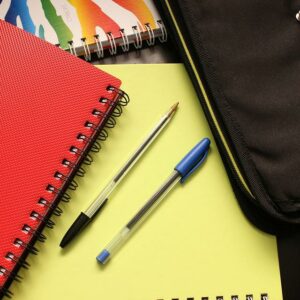
13 Jul Tips on How to Organize Your School Binder
10 Best Tips on How to Organize Your School Binder for High School and College Students
Doing great in your classes starts with having an organized binder. After all, studying effectively is pretty impossible if you can’t find any of your notes or forget the submission dates for your projects. Needless to say, keeping an organized binder is crucial for your success in school. It helps you find information quickly, stay on top of your deadlines, review your notes efficiently, and archive important tidbits you can later use for reference. When you take the time to figure out how to organize your school binder, you’ll find that not only keeping your things clutter-free but also studying more effectively and lessening your stress.
Tips on How to Organize Your School Binder
To learn more about how to organize your school binder, we gathered the best tips and tricks we found on Youtube, shared by organization experts and students like you!
- Start with a Post-It Notes dashboard. The first thing you should have on your binder is a dashboard for your Post-It Notes, which goes on the very first page, suggests Mikayla Greenwood. In her video, Organization Tips + DIYs for Everyone, she shows viewers how she turned an old file folder into a sturdy base for her dashboard. She then attaches different colored Post-It Notes using clear tape. This dashboard is super handy when you want to make quick reminders throughout the day. You can use specific colors for each type of reminder or notes you make or for each subject.
- Laminate important notes. If you find yourself reaching for a piece of particular information often—like a professor’s phone number, a Chemistry formula, or your class schedule—you’ll want to make sure you don’t tear or lose that piece of paper. An easy way to make sure your notes stay durable is by laminating them with a clear, thick tape, suggests Greenwood. Simply wrap the Post-It or any piece of paper you have with clear tape, making sure you cover all sides and corners to prevent tearing.
- Secure your binder pages. It’s pretty easy for binder pages to get torn and loose, especially with how often you’ll have to open them throughout the day. If you notice that some pages are starting to rip, Greenwood suggests taking your clear tape and covering the holes to prevent more damage. Then simply re-punch the holes before attaching them back to your binder. If you have more time on your hands and want to avoid altogether dealing with torn pages in the future, you can do this for all the pages of your binder.
- Invest in a good set of binder tabs. You may be the type who doesn’t like a lot of bells and whistles on their binder, but one thing you simply can’t do without is a good set of binder tabs. Mariana of Mariana’s Corner says that if you’re trying to keep your binder simple and minimalist, opt for a clear and sturdy binder tab with large colored number dividers for each subject for easy navigation. “You can then use [them] for future binders without having to buy new ones each semester,” she narrates in her video, Minimalistic Binder Organization Tips.
- Organize your notes for each tab. Once you’ve organized which subject goes onto which tab, you can then start dividing them according to the type of notes you want to keep. Mariana keeps three different types of printed documents in her binder: her lecture notes, discussion notes, and exercises. If you don’t want to add more tabs to partition each type (which detracts from your goal of keeping your binder more minimalistic), simply use a title page to serve as a divider.
- Keep things as neat and simple as possible. Although Mariana admits that she used to have complex binders full of customizable tabs, pockets, and inserts, she has now realized that simplifying things is better in the long run. “More complicated systems will distract you from the main activity in which you should concentrate, which is studying in itself, instead of organizing for the sake of organizing,” she states in her video.
- Use separate binders when necessary. When you’re constantly moving from one class or activity to the next, you not only want to make sure that you have everything you need but also that you’re not cluttering your already full backpack with unnecessary things. The same is true for your binder. In her video about How to Organize Your Binder, UCLA student Jasmine, who uploads videos about study and organization tips and her student life on her Youtube channel studyquill, shares that because her school has block scheduling, she decided to use two different binders for her odd-day classes and even-day classes. This way, she can streamline her note-taking and access them more efficiently. Make sure to have your binders in different colors so you can easily differentiate between them, she adds.
- Use dividers with pockets. If you’re trying to learn how to organize your school binder, then you’d want to make sure that you have a designated place to store those papers, handouts, and activity sheets from your teachers and professors. Instead of just slipping them between random pages of your binder, then struggling to find them later on, you can use the pockets that come with the dividers you have for each subject. “You want to avoid getting into the habit of every time you get a piece of paper back from the teacher or she gives out the paper just sticking it in here. You want to get into the habit of immediately putting it in its section so your binder stays organized,” shares Alejandra Costello, professional organizing expert and life coach, in her video Back to School Organization: How to Organize Your Binder & Supplies.
If your current binder doesn’t have pockets, a quick hack is to attach envelopes onto them, suggests Jasmine. This envelope can hold Post-It notes, flashcards, index cards, and other small notes that could otherwise easily get lost or misplaced.
- Don’t throw out ALL your notes from previous classes. Just because you’re done with one class doesn’t mean you can chuck your old notes and binder. As all students would know, a lot of high school and college subjects, especially science and math, build on topics you’ve already covered in your previous classes. So chances are, you’re going to find yourself going back to those notes. In her video, Organizing My Notes and Folders, Mari Brio echoes this, saying, “You will eventually need things you had in the first semester at the end of the course.”
To keep your old notes organized, Mari suggests starting with reviewing the contents of your old binders and taking out only the most important pages. She then places them in clear sheet pocket folders and adds a label before filing them in color-coded cardboard envelopes. Each folder is also labeled with the subject and semester.
- Set aside time to clean your binder. To maintain the neatness and organization of your binder, Costello says it’s important to find time to review its contents regularly and ensure everything is where it should be. “One thing I would do when I was in high school was every Sunday night, I would go through my binder and clean everything out. If there are papers there, I’d put them in their section. If there are papers in each section that could be taken out or I don’t need anymore, I would get rid of them or put them in a filing cabinet at home.”
Check out our other blogs:
⏩ Best Tips for How to Organize Your Backpack
⏩ 3 Tips For Brainstorming The Right Way
⏩ Why Are School Planners Important?
Want to know more about how to organize your school binders effectively? We can help!
Chat with Themba Tutors Today! Our tutors travel to your home.
We travel to the following locations: Manhattan, Brooklyn, Queens, Staten Island, Bronx, Long Island (Nassau & Suffolk Counties), Westchester County, Connecticut (CT), and New Jersey (NJ).
Have a free consultation today.
Call: (917) 382-8641, Text: (833) 565-2370
Email: [email protected]
(We respond to email right away!)
Craig Selinger
Latest posts by Craig Selinger (see all)
- Psychotherapy and Support Services at Cope With School NYC - April 12, 2024
- NYC Parents of Teens Support Group - April 8, 2024
- Here I Am, I Am Me: An Illustrated Guide to Mental Health - April 4, 2024

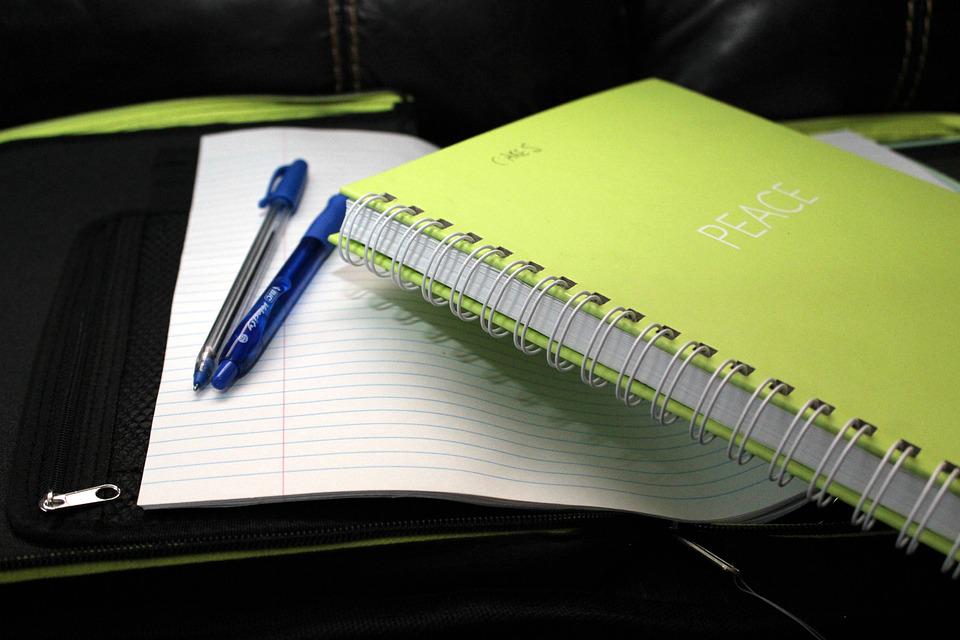
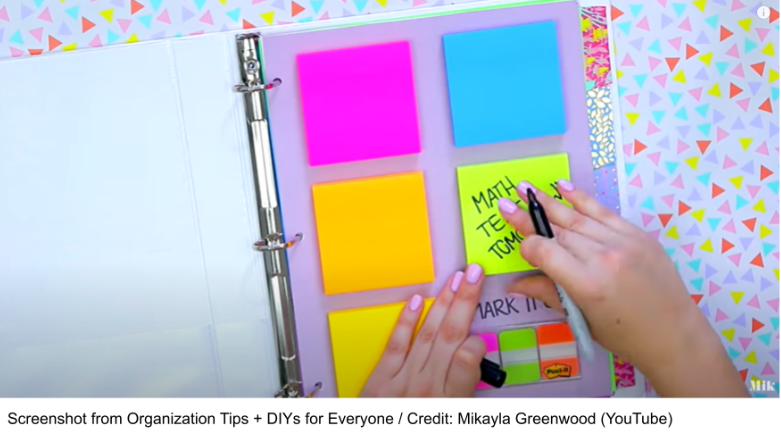
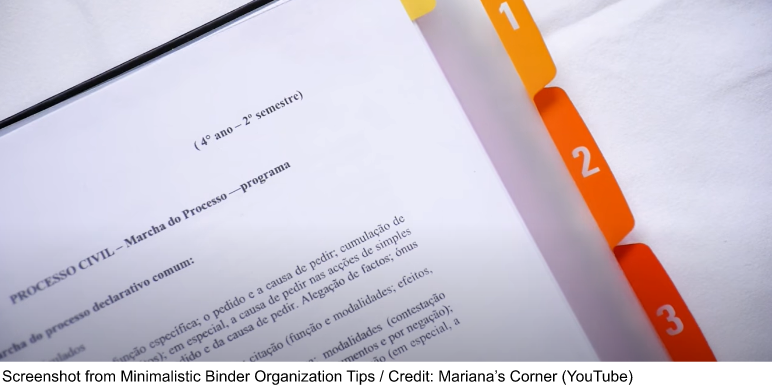
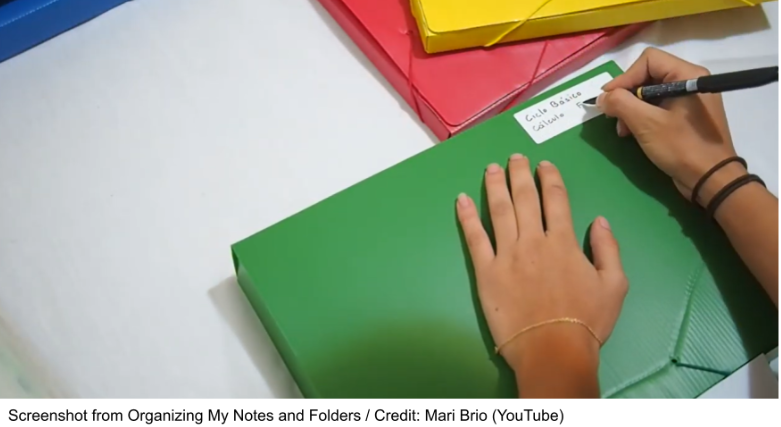
No Comments